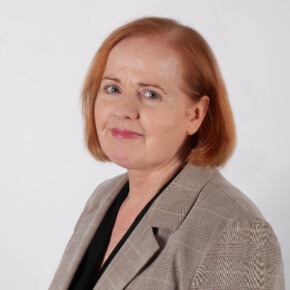Local families demand school reform for children with autism
Padraig Conlon 19 Jun 2025
Families across Dundrum and nearby communities are calling for urgent reform of the local school system, saying children with autism are being failed by a culture of exclusion, under-support, and silence.
A new report titled 60 Children, One Message: Schools Must Change highlights the stark reality facing many families: only 12% of children with autism are currently thriving in school.
The survey, conducted in late May, collected the experiences of 60 families and paints a picture of quiet but widespread exclusion.
One in five parents said they were pressured to withdraw their child from school, not through formal expulsion, but through what they describe as “soft barriers”: the reduction of supports, refusal of accommodations, or creating a day-to-day environment so difficult that families felt they had no choice but to leave.
“We had to constantly convince the school our daughter was autistic,” said one parent, who withdrew her seven-year-old from school last December.
“Her support was pulled, her therapist was asked not to return, and every request for staff training was ignored. Her anxiety became unbearable. We barely recognised her.”
The report reveals that 60% of the children represented have experienced school refusal, reduced timetables, bullying, or a complete inability to attend school.
Despite this, 68% of parents say it is their children — not staff or systems — who are expected to adapt.
In many schools, families said inclusion depends entirely on the goodwill of individual staff members.
“When inclusion depends on personality instead of policy, it creates a postcode lottery,” the report states.
“And when schools opt out, our children are squeezed out of their own communities.”
Some families described their children being penalised for behaviours linked to their condition.
One child was expected to make eye contact under a new school policy, leading to burnout and refusal to attend. Others faced disbelief from schools when describing their child’s anxiety, with one parent told her daughter was “a happy child” and that concerns were being exaggerated.
A significant theme in the report is the lack of autism-specific training.
Seventy percent of parents said they were not told whether staff had completed any such training.
Many feared asking would result in backlash or reduced supports.
Families are calling for annual, evidence-based autism training for all school staff, including modules on intellectual disability and Pathological Demand Avoidance (PDA).
Two-thirds of the children in the report have high support needs, and parents say current school systems are not meeting them.
Most concerning for many parents is the belief that some schools are deliberately avoiding the opening of autism classes.
Seventy-five percent said they believe schools in the area do this to discourage enrolment or nudge families out.
These practices, while difficult to prove, are “keenly felt” by those affected, the report says.
The families behind the report are asking the Department of Education and the National Council for Special Education to develop a national audit tool to track autism training and inclusive practice across schools.
“We’re not asking for anything extraordinary,” one parent said.
“We just want our children to be safe, supported, and included in their local schools.”
The report calls for a culture shift, not just better policies.
“Real inclusion isn’t just about ticking boxes,” it reads.
“It’s about creating school environments where children with autism feel respected, secure, and valued for who they are.”
The NCSE’s own 2024 position paper, An Inclusive Education for an Inclusive Society, supports this vision.
It calls for children to be educated in their local schools, where they can build friendships, belong to their communities, and thrive.
For the 60 families who shared their stories, the message is clear: change is not just necessary — it’s overdue.











